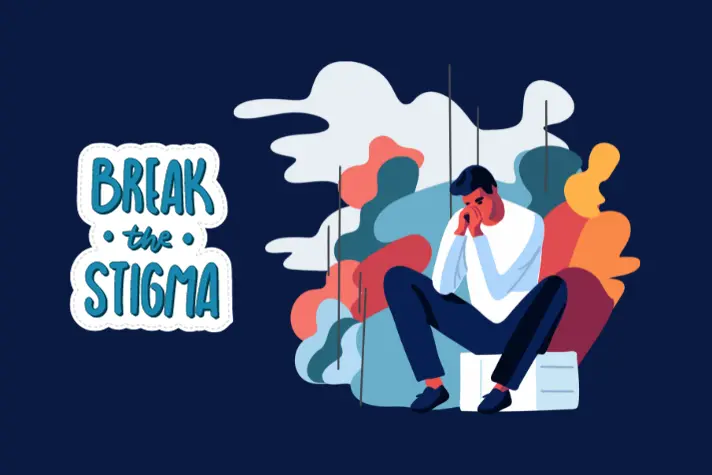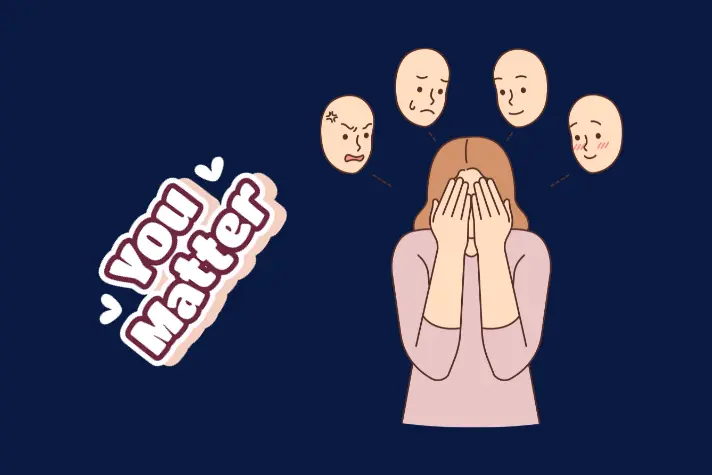
While many people struggle with their mental health, over 50% of people who have a mental illness never seek treatment.
As a society, we know about mental health more now than ever. However, mental health stigma is still very much alive. From misinformation shared in the media to long-held misconceptions among the public, stigma stems from many places. People living with the illness often pay the biggest price.
Take a closer look at mental health stigma, how it can pose issues, and what you can do to step out of the negative light if you struggle with your mental health.
A Closer Look at Mental Illness Stigma
By definition, the word “stigma” means a disgraceful mark associated with a certain quality, person, or circumstance. Mental health stigma means a negative light, perception, or negative attitude associated with mental health issues and disorders.
Due to mental health stigma, people who have a mental health condition can face several obstacles, including hesitance to seek treatment. Stigma may come from people but also can be deeply ingrained in even institutional policies and cultures.
Where Does This Stigma Originate?
Mental health stigma is often associated with misconceptions and misguided beliefs about mental health.
In some cases, stigma can even be unintentional and simply the result of someone being under the wrong impression about a certain disorder, the symptoms of a certain condition, or even people who struggle with a certain illness.
Stigma can come from things such as:
- Lack of understanding or education about mental health
- Misinforming media information or portrayal of people with mental illnesses
- Cultural or spiritual beliefs about mental illness
How Mental Illness Stigma Negatively Impacts People With a Mental Illness

Stigma easily leads to people with a mental illness being treated unfairly and differently simply because they have a mental illness that they cannot control. Negative remarks, unfair treatment, and even misguided perceptions can all be damaging to the individual struggling with mental illness.
Those faced with mental illness stigma can face a litany of harmful effects, such as:
- Unwillingness to seek mental health services even though help is needed
- Lacking social support from others
- Fewer opportunities to excel on the job or in school
- Difficulty finding housing
- Being isolated from social activities
- Feelings of shame or embarrassment associated with symptoms or the illness
- Exacerbated mental health symptoms
- Being bullied, harassed, or the victim of violence
How to Combat Negative Stigma Associated With Mental Health
If you are someone struggling with your mental health, learning how to cope with the stigma associated with your illness can sometimes be just as difficult as dealing with the condition itself. However, there are a few ways to deal with any stigma you may be facing.
Seek Mental Health Treatment
Despite the stigma or negative reactions that you may get from others, be sure to reach out and get the help you need. If you are already in treatment, don’t let others sway you to stop getting the help you need.
Avoid Allowing Stigma to Generate Feelings of Shame or Guilt

Negative stigma is not based on factual beliefs. Therefore, if you are dealing with insulting comments or a negative perception of who you are because of your illness, be sure not to take things personally.
People who stigmatize those with mental illness are often uneducated about the facts or have no personal experience themselves. Therefore, you should not feel ashamed or embarrassed.
Strive to Remain Socially Connected
You may feel tempted to isolate yourself from others, especially if your primary social connections are with people who view you or your condition in a negative light.
However, maintaining social connections is important to your mental wellness. Even if you have to seek a support group to maintain a good social support system, do so.
Remember, You Are Not Your Illness
With the presence of negativity associated with your illness surrounding you, it can feel like your only identity is the mental illness. However, you are not your illness, and your illness is not a part of who you are as a person.
Use Facts to Negate Misinformation
As someone who struggles with mental health, you play a role in negating misguided connotations and beliefs associated with your condition. If you feel strong enough, don’t be afraid to speak up and correct others when they are misguided.
Take some time to educate yourself about your condition, and you can use facts to help people truly understand your condition.
Find the Support You Need for Your Mental Health
Stigma can make you feel like all hope is lost or that you are somehow flawed because of your illness.
However, working with a mental health professional helps you recognize your illness for what it is: a condition that is not your fault. If you are struggling with your mental health, reach out to a mental health professional for advice.
About The Author:
Stacey Smith is a freelance health writer. She is passionate about writing about women’s health, dental health, diabetes, endocrinology, and nutrition and provides in-depth features on the latest in health news for medical clinics and health magazines.
SOURCES
https://www.psychiatry.org/patients-families/stigma-and-discrimination
https://www.healthdirect.gov.au/mental-illness-stigma
https://www.mayoclinic.org/diseases-conditions/mental-illness/in-depth/mental-health/art-20046477




